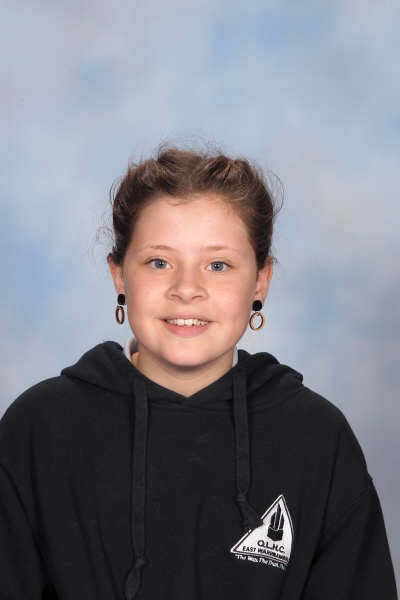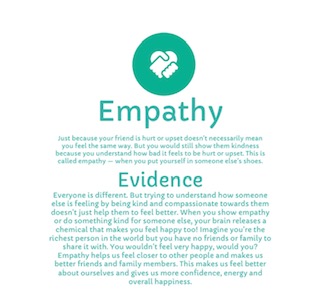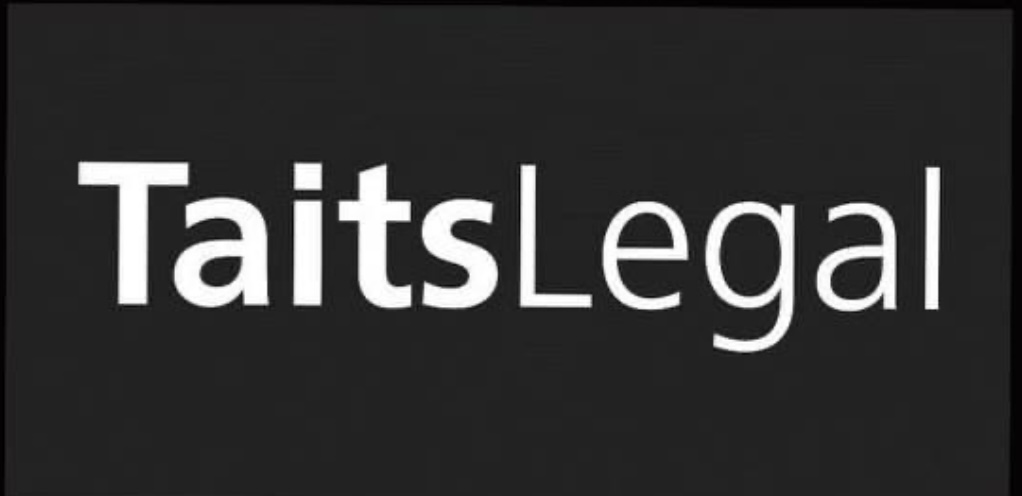Newsletter T3W3
Acknowledgement of Country

Today we acknowledge and pay our respects to the First Peoples, the traditional custodians of the lands and waterways and thank them for their continued hospitality.
We acknowledge and celebrate the continuation of a living culture who have lived with Creator God through creation of land, sea, waterways and life.
Prayer

Prayer Before Eucharist
Lord Jesus, come to me
Lord Jesus, give me your love
Lord Jesus, come to me & give me yourself
Lord Jesus, friend of children, come to me
Lord Jesus, you are my Lord & my God
Praise to you Lord Jesus Christ
Leadership & Stewardship

Principal's Message
Dear members of the OLHC school community,
In the busyness of school life, I often check myself to reflect on how we are tracking with our core “business” of teaching and learning. The reality is schools exist to promote learning and my responsibility is to put all the pieces of the puzzle together to ensure I give our children and teachers the best conditions to maximize the worth of these interactions. Having parents on board, informed and engaged has been proven to improve student performance.
It also got me thinking more deeply about what learning really is and how we can continue to improve as educators of your children. As I have mentioned before, I will never ask the children what they are doing when I visit their rooms, I will always ask them what they are learning. It is this explicitness and clarity of instruction that matters here and as a school, we are actually aware that your child’s learning or engagement shouldn't happen by accident. Rest assured we truly believe every day is a learning day for all of us and that in reality learning is about changing minds.
This week many parents choose to either visit the school or make contact with their child's teacher for a Parent/Teacher conference. These opportunities allow for both a celebration of your child's work and efforts as well as clarification on any challenges or goals going forward.
Thank you for your attendance and support.
Steve

Drone shot of Grade 2- Sheree Dubois- The World of Work Unit
Semester 2 Student Leadership Team
We'd like to give a big thanks to our outgoing student leaders for their fantastic leadership throughout semester 1 and welcome our new leadership team for semester 2.
School Captains - Hugh McCarthy & Isabella Berry


Vice Captains - Layla Sherlock & Finn Morgan


Arts/Japanese Leaders - Imogen Johnson, Isaac Lowe & Felicity Dennis



Sports Leaders - Lenny Thornton, Cleo Tamasese, SIenna Kenneally, Ollie Dowie, Alana Scott, Charli Martin, Ned Bowman & Lily Crawford








Social Justice Leaders - Taj Warhurst & Zahli Dean


ICT Leaders - Max Nicolson & Lara Jaensch


Library Leaders - Lily Hogan & Jude Delaney



Term 3 Important Dates
Friday 28th July - School Closure /Staff Maths Professional Day
Thu 27th & Mon 31st July & Tue 1st August - Book Fair
Mon 31st July - Fri 4th August - New Family 2024 Foundation Interviews
Friday 1st September - Father's Day Breakfast
Friday 1st September - PFA Secondhand Uniform Sale
Sat 2nd & Sun 3rd September - Eucharist Celebrations
Sunday 3rd September - Father's Day
Friday 15th September - Term 3 concludes @ 2.30pm


Teaching & Learning @ OLHC
A Message from Mr A
Week 3 Term 3
Just a reminder that tomorrow is a pupil free day for students. Our teachers will be participating in professional development to further enhance their ability to teach Mathematics.
PARENT/TEACHER CONFERENCES
It was great to see so many parents onsite for the conferences this week. Some positive feedback from parents over the two days and it was great to see them sitting down and discussing their child’s learning in the classrooms. A big thanks to the teachers for being organised and also other staff who assisted with the logistics of the two days.
GRADE 3 INQUIRY- FRAME BY FRAME
Our Grade 3 cohort headed off to One Day Studios at Fletcher Jones as part of their Inquiry unit, Frame By Frame. The students learned about some of the animations the company had made previously, had a go at making an animation with iPads and an Apple Pen and got some help with their ideas for their own stop motion animations they will make towards the end of the unit. The students were certainly excited when I picked them back up on the bus. Well done Grade 3 team!




There is a genuine hub of excitement circulating around the Library at the moment with the Book Fair in full swing. All students love this time of year when the Library transforms with an opportunity for them to purchase books and associated paraphernalia. A big thank you to Mr Louden and Mrs Taggert for setting this up. Mrs Taggert is an expert at this, working tirelessly each year to ensure this event runs smoothly. Well done Library team!

Have a relaxing weekend with your family.
Thanks,
Naish

Cyber Safety Bits with Ms Fitzgerald and Mrs Murfett Hello Parents, Guardians and Friends, Each week the Digital Technology teachers Ms Fitzgerald and Mrs Murfett will be bringing you new cybersafety tips and what is going on in the technology room this week. If you have any questions or concerns regarding cybersafety please contact us on: Ellen Fitzgerald: efitzgerald@olhcwarrnambool.catholic.edu.au Sarah Murfett: smurfett@olhcwarrnambool.catholic.edu.au |
New Student Agreements at OLHC
We have been working to create new student agreements that are more tailored to the level the students are in. This has helped us to achieve our eSmart Status at OLHC! Over the Next 3 weeks we will be showing you the new agreements across the junior, middle and senior school levels and in week 5 and 6 introduce them to the students and send them home for parents and children to sign them together. Today is the Junior School agreement, which is a bit more visual for the younger group! The pdf versions are available in our policies section on the school website.

What is going on in the classrooms this week?
Foundation: Will be continuing to create their own Little Learners Love Literacy book using Google Slides
1s: Will be continuing to learn to use Google's new feature Autodraw
2s: Will be continuing to create Google Slides all about themselves and learning all the features of the app.
3s: Will be starting their project using Google Draw to create a picture of themselves
4s: Will be continuing their project on Google Draw to create a comic strip
5s and 6s: Will be continuing to create their own website using Google Sites
Awards

Walk Ride Champion of the Week
Walk Ride Champion is if you ride or walk to school you receive a prize and get to have your profile in the school newsletter and an interview on ClassDojo. So start riding or walking today to be in the running for a prize.
Name: Alicia
Age: 10
Grade:5
Class: 5GR
House: Yellow
Favorite food: ice cream
Favorite color: blue
Favorite animal: giraffe
Sports you like: swimming and netball
Football team: Essendon
How far do you walk to school: 1 block
How much did you walk this week: every day
How long does it take you to walk to school? 2 minutes
How long have you been walking to school? 4 years
What is one tip you would give to anyone wishing to walk to school for the first time?
Tip of the week: if it’s a rainy day bring a jacket because you will get wet
Faith & Culture


Parish Office Hours: 9am - 4pm Monday - Friday
P: 5562 2231
E: southwestcoast@ballarat.catholic.org.au


Eucharist Dates
Eucharist Practice: 24th August @ 2 pm
Celebration of Eucharist: September 2nd & 3rd - Please note change of dates



Kingdom Stories
(Matthew 13: 44 - 52)
The last few weeks we’ve been treated with kingdom stories. Some are casual, like the woman kneading dough or the sower going out to plant a field. Some are loaded with suppressed excitement: the merchant finding the pearl, or the discovery of treasure in an unmarked field. What kind of kingdom can be glimpsed from a net cast lightly into the sea, emerging with the day’s catch AND a year’s worth of junk?
What’s clear is that the kingdom of God isn’t a simple idea. It’s not the usual religious jaunt from a life of good works to a heavenly reward. The kingdom is known through fidelity to small tasks yet holds enormous surprises and can lead to high spiritual gambles. We may be willing to put a pinch or piety into the dough and watch the bread rise. But not all of us will sell everything, even to purchase the brightest pearl on earth. Gamble, with our nest egg?
In fact, every kingdom story has its own risk factor. Not every loaf will rise, not every field sown will produce a yield. The dragnet if human experience pulls up what’s useful to spiritual growth and more garbage to haul around. We’re choosing, in every minute, how much we will sacrifice, how much to risk.
Pray
Surprising God, is your presence like yeast, or engulfing weeds, or reckless investment, or indiscriminate fishing? As we ponder your reign among us, demand our attention and inspire our service. Alert and revitalised, we thank you. Amen.
Ponder
Bake a loaf of bread. Plant a seed. Go fishing. Invest in something really important. But whatever you do, consider how your actions teach about God’s kingdom and how it comes into the world through you.
Kids’ Corner
It’s not always easy being a kid, is it? So much to learn and so many questions to ask! Young Solomon felt that way too. before his father King David died, he appointed Solomon the new king. Solomon was afraid. He would have to lead his people, but he didn’t know how. He knew he needed guidance, so he turned to God. He asked for an understanding heart and the wisdom to know right from wrong. The Lord was pleased when Solomon knew he could always trust in the Lord’s support and love. You can too!
Loving God, please be my guide. Amen.

A Word from the Wise
Jesus continued, “God’s kingdom is like a treasure hidden in a field for years and then accidently found by a trespasser. The finder is ecstatic – what a find! – and proceeds to sell everything he owns to raise money and buy that field”. (Matthew 13: 44)
As a journalist gathered notes for a story on Monsignor Jack Egan, renowned priest, she would feel his eyes searching her face. Egan was 80 at the time and had already become a legend among Catholic activists as a man who spoke truth to power and fought racial discrimination and social injustice with the faith and ferocity of an Old Testament prophet. His virtues were many, but the one he displayed that day – an understanding heart – surprised his young admirer.
Egan had asked her some searing questions about what she said was doing with her life. She knew her accomplishments and concerns were minor and compared with the great things this courageous man had achieved. With Egan’s prompting, she finally admitted to being stymied by a broken heart over a lost love. She then quickly dismissed her problem as petty and insignificant compared with the suffering of people around the world.
“Young lady,” Egan said, “don’t ever diminish the pain you feel. Your pain is as real as anyone else’s and equally worthy of healing”. She considers the wisdom shared that day as her pearl of great price.
Parish Bulletin
Wellbeing

If you want to learn to ride a skateboard or get better at maths, you need to practise. It’s the same when you want to feel happier!
Here are some easy ideas to give Gratitude, Empathy, Mindfulness and Emotional Literacy a try every day. Because the more you practise, the better you will feel.
Let's Practice!






How to manage your child’s self-criticism
By Amber Sowden
Comparison can drive us to improve but as Amber Sowden writes, it can also lead to self-criticism. Here she offers helpful advice on how to respond to a child in the habit of negative comparison.
Social comparison can happen to a child at any time – during a sports match, on social media, at a birthday party, or in the classroom. Comparison plays a crucial role in the development of identity, shaping of opinions and establishing a sense of self.
Positive comparisons can drive self-improvement, aid in realistic goal setting, and help build empathy. But negative comparisons can derail the self-worth of children, leading to feelings of inferiority, low self-esteem, discontentment, withdrawal, and decreased motivation. Creating supportive environments where children understand their unique strengths and weaknesses and where their perceived worth is not solely determined by their measurement against others, is essential.
Knowing how to spot the signs that a child is using self-comparison not as a positive motivator but rather as a detractor, is crucial to helping children navigate and reframe the comparison traps they will face throughout life.
How to talk about comparison
For many children, comparison starts in the form of simple curiosity. A child might question why they have different household rules or family routines in place asking: ‘Why does my friend get to use the iPad every day?’ or ‘Why does that child have a later bedtime than I do?’. These questions show interest in the behaviour of others, challenge boundaries and express emotions around fairness.
When a child asks questions rooted in comparison, use it as an opportunity to talk about differences. Providing age-appropriate explanations for the dissimilarities they observe both reinforces important family values and encourages a review of the household rules and guidelines in place.
As children enter adolescence comparisons become more pronounced, with social comparisons intensifying, prompting deeper self-evaluation. A child who was once secure in their academics may begin to self-doubt as they realise classmates are excelling in areas they aren’t. A tween with a small, but intimate group of friends may begin to believe they are unpopular because they don’t have a wider social network or access to experiences.
Older children can be supported through these moments with questions that prompt self-reflection such as ‘How does comparing yourself to others make you feel?’ or ‘What do you gain or lose by comparing yourself negatively to others?’ and ‘Are there other ways to evaluate your progress and success without relying on comparisons?’. Questions like these help a teen realise the unhelpful potential of comparison and redirect to more positive thinking.
The pitfalls of comparison
Children who negatively compare themselves to others are likely to become overly self-critical, lack confidence, and fixate on their weaknesses without taking time to recognise their strengths and achievements. They may feel more unsure of themselves and their abilities, give up on tasks and cope poorly when they make a mistake. The risk is that the child refuses to take chances or expose themselves to new experiences to safeguard against failure.
Ultimately, comparison can be the thief of joy, feeding into unrealistic expectations and perfectionism. As a result, the potential to show kindness and empathy may be overshadowed by anxiety and self-focus.
The impact of social media and negative beliefs
Social media holds the potential to magnify self-comparison by exponentially increasing opportunities for children to compare themselves to others.
When a child views the content shared by a celebrity, influencer or peer, they’re presented with a highly curated glimpse into that person’s life, often only seeing achievements, successes and coveted possessions. This is true for people of all ages, but especially for adolescents and teenagers who due to their lack of social experience and understanding of reality, aren’t always able to separate their personal circumstances from those depicted online.
Online content, especially that found on social media, can easily push users into a negative comparison trap. A child might ask ‘Why wasn’t I invited?’ or ‘Why don’t I have that item’ and ‘Why doesn’t my life look like theirs’. To manage these expectations, it’s important to closely monitor and engage in a child’s social media usage. Be open to talking about what they view, who they follow, what they like and don’t like about what they see. Showing interest in their online experience can open discussions about whether it would be helpful to change elements of their online behaviours.
Behaviour modelling and realistic expectations
Parents also have a role to play in modelling healthy comparisons. Consider how you talk about other people – including siblings – and the verbal comparisons made to others about yourself and your child. Avoid focusing on results, whether these be academic, sporting or social, and instead offer applause when a child attempts something new or gives a task their best shot.
Setting realistic expectations and goals is another effective way to prevent comparison from taking a negative turn. For example, if a child wants to be the best basketball player on the team, it’s important to manage expectations in the event this doesn’t eventuate. Talking about how the child would feel if they achieved this goal – versus if they didn’t – allows them to consider multiple short- and long-term outcomes. A level of self-awareness enables children to react more positively to unplanned failures or shortcomings in the future.
Celebrating difference
Helping children celebrate differences in themselves and others, and encouraging them to explore their own individuality, builds confidence and helps children value who they are.
To support children in exploring their uniqueness, it’s important to introduce opportunities for autonomy in their life. Having agency to make decisions, allows them to better explore who they are and are not. Letting them choose what they wear, their hairstyle and what extra-curricular activities they pursue enables them to experiment as they develop their own interests and social groups. Exploring individuality allows children to focus less on comparison and more on the development of their own uniqueness.
Learning to manage social comparison and self-criticism is a crucial aspect of emotional development for tweens and teens. By understanding the factors that contribute to negative comparison, and how to respond, we can offer them the tools to foster a greater level of self-compassion and assist them in developing a healthy and resilient mindset.
Parents & Friends Association

Community

Term 3: Concluding on Wednesday 30th August
Term 4: Monday 9th October, concluding on Wednesday 22nd November
The students participating, meet staff in the courtyard after school where they have some fruit before heading over to the school hall.
This program runs from 3.30pm to 4.45pm
We appreciated parents/guardians being prompt on pick up.
Enrolment forms are in the school foyer or can be found on PAM in the "Knowledge Bank" under forms and then selecting sporting schools or on the link below.
These forms need to be returned to the school office prior to your child/ren participating in the program.
If you have any further queries please contact the school office.

Lingapiny Ajak Inc. Is a registered non-profit charity organization, established in March 2023. Our mission is to teach and empower underprivileged individuals, families and communities in Sudan and continue to develop projects that assist creating a better life for all.
Earlier in the term we included in our newsletter, an article that was in the local newspaper putting the spotlight on Teresa Padiet (Yr 6 student Evans Ajang's mum) and the wonderful work she is achieving in Sudan. Please see details on the webpage below.
Webiste: lingapinyajak.org
Email: lingapinyajak@gmail.com
Athletes Foot School Rewards


Birthdays

This Week's Birthdays
Foundation
Remi Keogh
Liam Moloney
Yr 3
Lucy Coxall
Willow Wickenton
Yr 5
Connor Sheen
Elky Veale
Yr 6
Nenagh Kettyle
School Sponsorship










School Forms & Policies
Mobile Phone Policy & Form
Medication Administration Form
Asthma Action Plan
Camps, Sports & Excursions Funding Form
OLHC Lunch Order Menu 2023
Please clearly label your child's Name, Class, Order & Total Cost on a brown paper bag with the correct money inside.
Country Bus Travel Application
Jill Burgess - Administration/Bus Coordinator @ Brauer College
P: 5560 3888
E: Jillian.Burgess@education.vic.gov.au
WCC After School Care Information
LOWES Uniform Price List
OLHC Enrolment Form
OLHC 2023 Prospectus
